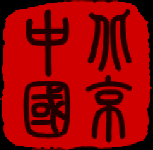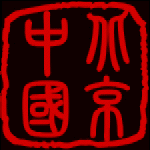 Spring Festival 2007 Spring Festival 2007 
Chinese New Year
For the Chinese, the New Year begins on
7th February this year.
The Spring Festival (also known as the
Chinese New Year) is the most important festival for the Chinese people and is
when all family members get together, rather like Christmas in the West. Nearly
all people living away return home. Thus, this is the busiest time for all
transportation systems, starting about two weeks before the Spring Festival
itself.
The Spring Festival falls on the 1st day
of the 1st lunar month, usually about one month later than the Gregorian
calendar. Generally, late January to early February.

The Spring Festival originated during
the Shang Dynasty (c. 1600 BC - c. 1100 BC) from the people's sacrifice to gods
and ancestors at the end of an old year and the beginning of a new one. The most
important days are Spring Festival Eve and the first three days. The Chinese
government has stipulated that people have seven days off for the Lunar New
Year.
Many customs accompany the Spring
Festival. Before the New Year, there are many preaparations. Store owners are
busy then as everybody goes out to purchase necessities for the New Year. These
include fruit, candies and various types of nut. What's more, various
decorations, new clothes and shoes for children as well as gifts for the
elderly, friends and relatives, are all on the list for purchasing. Also, people
completely clean both the indoors and outdoors of their homes as well as their
clothes, bedclothes and all utensils.

Then people begin decorating their clean
rooms featuring an atmosphere of rejoicing and festivity. Doors will be pasted
with Spring Festival couplets, highlighting Chinese calligraphy with black
characters on red paper. The content varies from house owners' wishes for a
bright future to good luck for the New Year. Also, pictures of the god of doors
and wealth will be posted on front doors to ward off evil spirits and welcome
peace and abundance.
The Chinese character "fu" (meaning
blessing or happiness) is a must. The character put on paper can be pasted
normally or upside down, for in Chinese the "reversed fu" is homophonic with "fu
comes", both being pronounced as "fudaole." What's more, two big red lanterns
are often raised on both sides of the front door. Red paper-cuttings can be seen
on window panes and brightly colored New Year paintings with auspicious meanings
may be put on the wall.

People attach great importance to the
eve of the Spring Festival. All family members will eat together a meal more
luxurious than usual. Dishes such as chicken, fish and bean curd cannot be
excluded, for in Chinese, their pronunciations, respectively "ji", "yu" and
"doufu", mean auspiciousness, abundance and richness. In recent years, the grand
Spring Festival party broadcast on China Central Television (CCTV) is essential
entertainment for the Chinese, both at home and abroad. According to custom,
each family will stay up to see in the New Year.
On New Year's day, everybody dresses up.
First, they extend greetings to their parents. Then each child will get money as
a New Year gift, in a red envelope. People in northern China will eat JiaoZi, or
dumplings, for breakfast, as they think "jiaozi" in sound means "bidding
farewell to the old and ushering in the new". Also, the shape of the dumpling is
like a gold ingot from ancient China. So people eat them and wish for a
prosperous year ahead.

Southern Chinese eat NianGao (New Year
cake made of glutinous rice flour) on this occasion, because as a homophone,
NianGao means "higher and higher, one year after another." The first five days
after the Spring Festival are a good time for relatives, friends and classmates
as well as colleagues to exchange greetings, gifts and relax, indoors and
out.
The lively atmosphere not only fills
every household, but permeates to streets and lanes. A series of activities such
as lion dancing, dragon dancing, lantern festivals and temple fairs will be held
for days. Setting off fireworks is a common custom during the Spring Festival.
It is thought that the loud bangs could help drive away evil spirits.
The Spring Festival then comes to an end
when the Lantern Festival is finished.
China has 56 ethnic groups. Minorities
celebrate their Spring Festival almost the same day as the Han people, although
they have some different customs.

Send a Spring Festival musical e-card
or simply view it here
 More about the Spring Festival More about the Spring Festival
(external link)
 Beijing Guide Beijing Guide
| 


